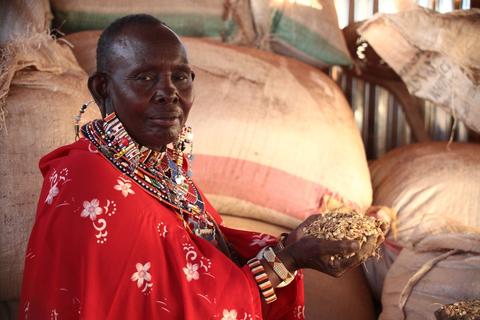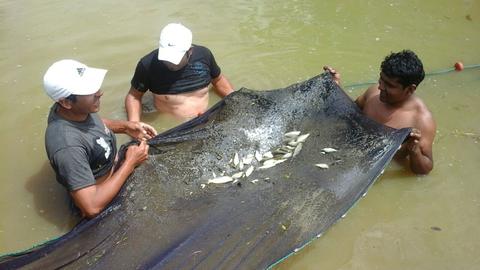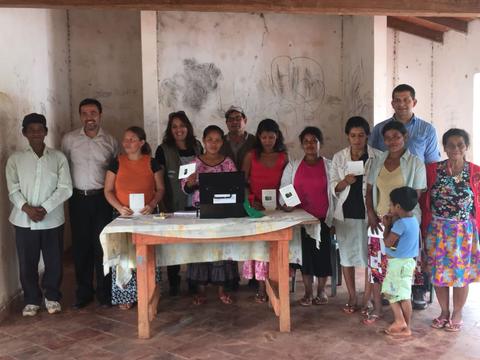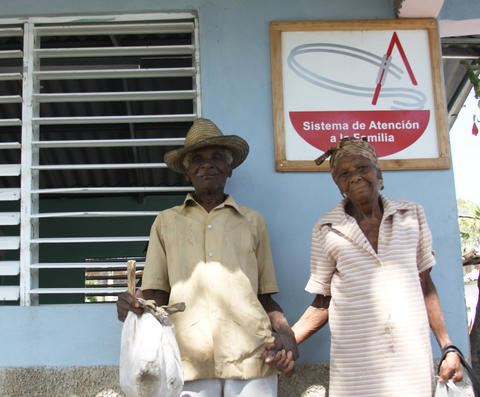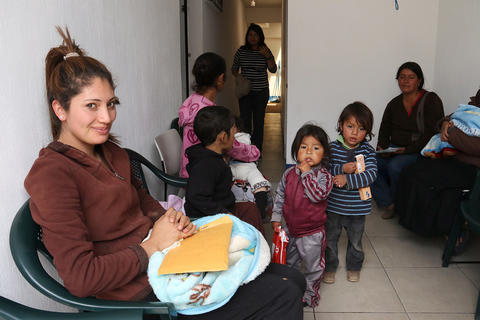September 20, 2018
Practical training improves the nutrition of families in Colombian Cauca
The long-term armed conflict has damaged production, institutions, food security and social trust in Colombia. Due to the causes and consequences of the conflict, the territories of Cauca, in the south of Colombia, are especially vulnerable. Organizational structures have weakened, the social fabric has broken down and food autonomy is in decline. Since 2015, a joint program of the Sustainable Development Goals Fund (ODS Fund) has combined efforts with local and international actors to reverse the situation through the promotion of sustainable agricultural production of indigenous crops. Capacity centers teaching practical techniques for the strengthening of livelihoods and diversified production are making a difference.
From the methodological principle of "learning by doing", the program has focused mainly on food security and nutrition, the integration of actions and knowledge, institutional commitments with organizations and local and regional producers; as well as improving the economic capacities of small farmers through the strengthening of livelihoods, diversified production, value chains and the development of inclusive markets as a means of building peace in the territories.
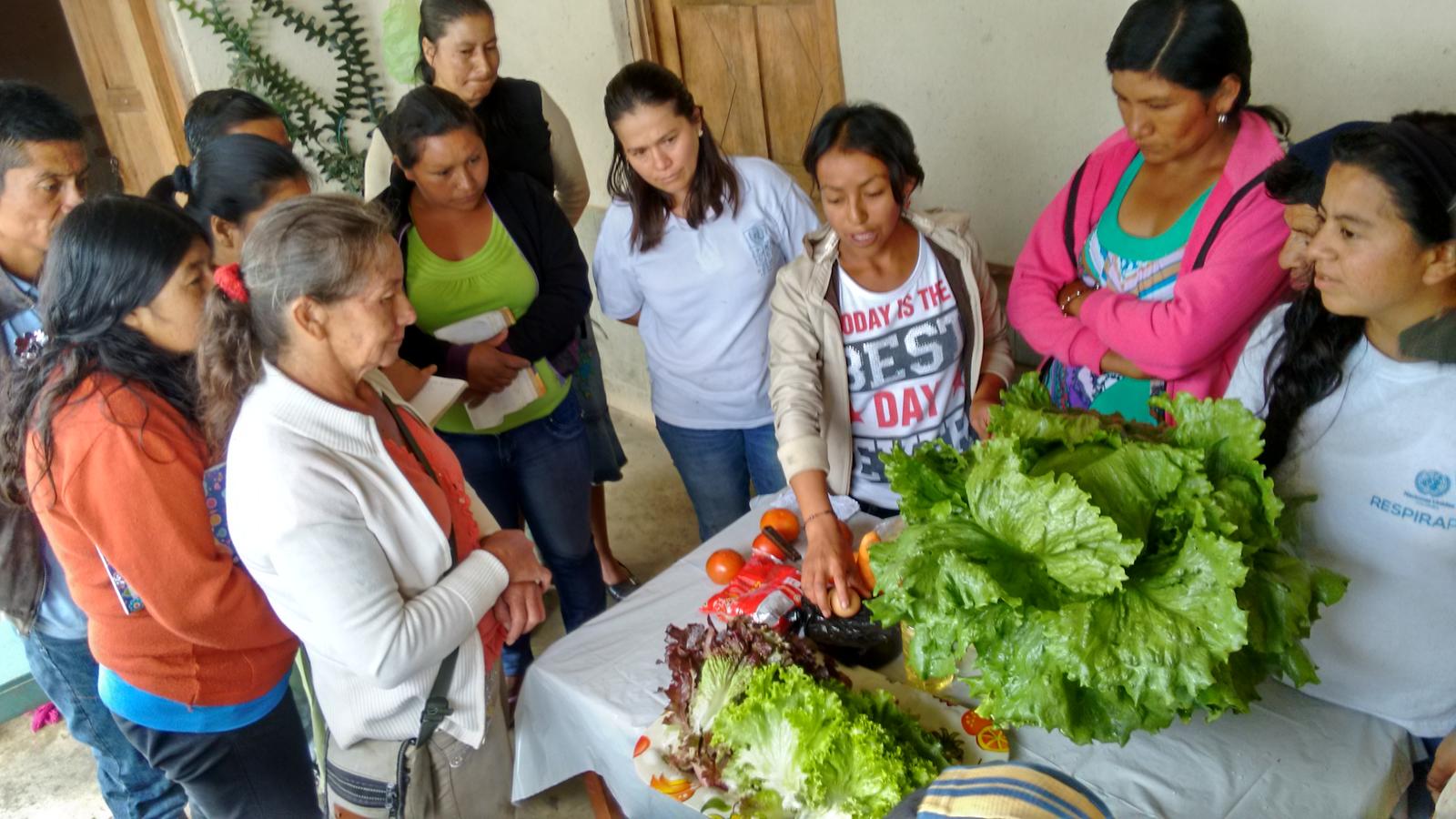
The program has strengthened the technical and productive capacities of 407 families that participate in the training processes through the methodological principle "Learning by doing" through the 18 Community Training Demonstration Centers. In order to improve production systems and promote the efficient use of water in agricultural production, plastic tanks for water storage and self-compensating drip irrigation systems are supplied (each plant is irrigated and there is no waste in streets or furrows, also avoiding competition for weeds).
Likewise, 395 families were trained in garden planning with an agroecological approach and risk management, focusing on learning in crop diversification, stepped sowing to maintain constant food production, better coping, emergencies presented by droughts, and strong winds. Dictation workshops for the preparation of liquid and solid organic fertilizers, including Bokashi type fertilizer, and biopreparations for the control of diseases and insects that affect the production of vegetables. Equally well-being areas, tool rooms, Tippy tap sinks, cuyeras, germinadores and covers and greenhouses were built in order to mitigate adverse effects of the climate.
Moreover, the use of local species that contribute to the food and nutritional security of families was promoted, such as arracacha, yucca of year, year yellow corn, sisa potato, matahambre corn, calima bean, bajona yucca, pineapple, varieties of potato, oca, majua, yacon, broad bean, chamomile, rosemary, mint, calendula, oregano, thyme, artichoke, kidney beans, pumpkin, chard, parsley, long onion, zapayo, achira, quinoa, piquinegra peas, among others.
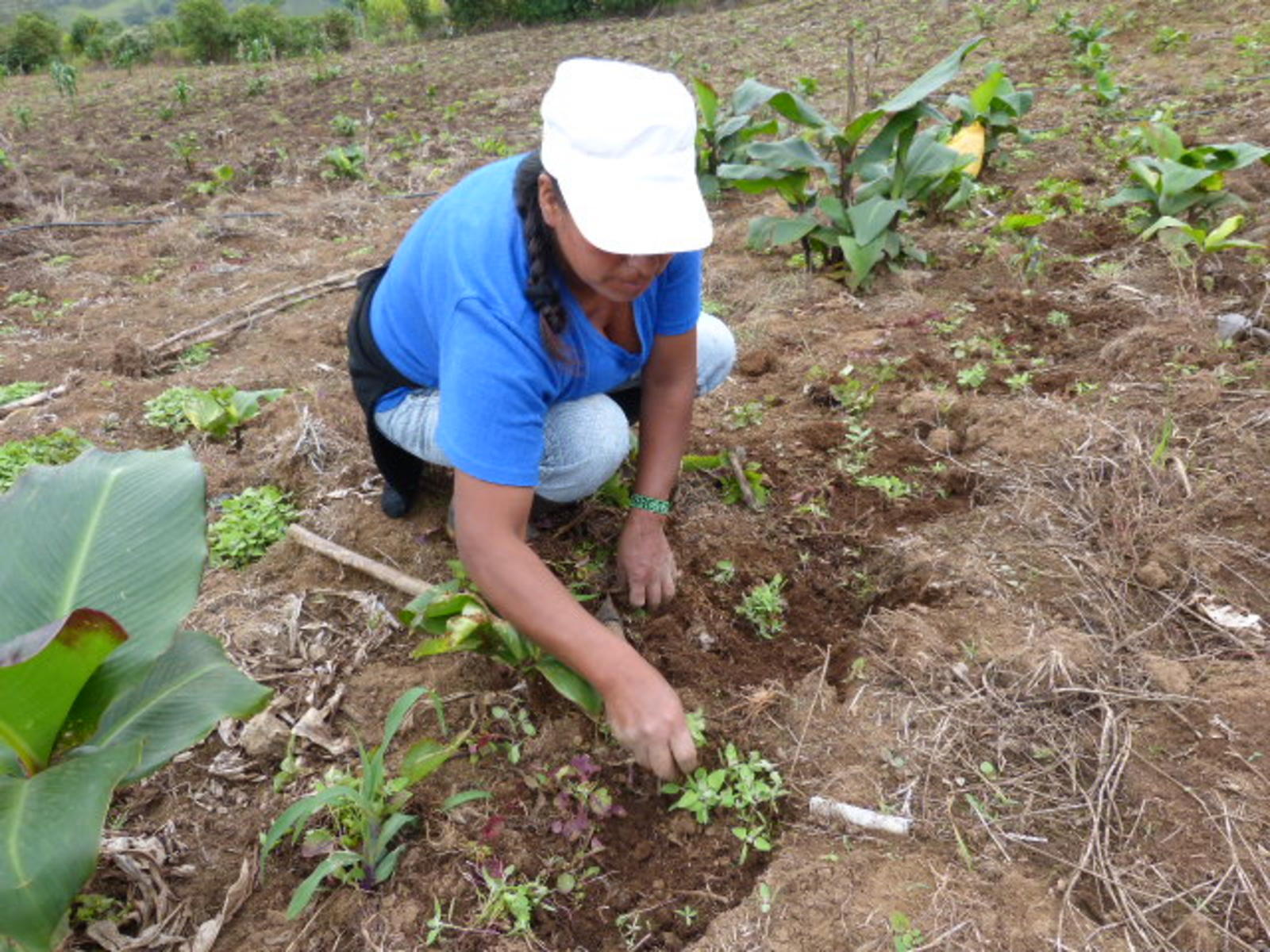
In addition, all schools have community nurseries of local species that are breeding for watershed and micro-basin protection. Produced more than 15.7 tons of food in the 18 centers. Implemented 400 replicas of family gardens. Identified 33 seed custodians in the demonstration centers and 10 climate monitors. Developed exchanges (barter) of seeds, and agricultural products, "blessed" according to local knowledge by the communities.
Finally, the delivery of the livestock component composed of about 400 guinea pigs was also carried out. In this way families will have protein of animal origin to supplement their diet and contribute to improve their nutrition and nutrition. Built recipe book that collects the various preparations and typical local dishes, as well as some recipes taught by the kitchen technician, which include vegetables and fruits, which promote diversity of diet and increase frequency of consumption.
Best practices for food sovereignty
This set of actions aime to promote the dissemination and appropriation of culturally appropriate good practices in aspects of food sovereignty and healthy living habits as well as promoting values and traditions of families and communities of ethnic groups through projects that strengthen food self-sufficiency or that support activities that contribute to obtaining food, processes that are considered in their Life Plans or, that have been agreed with the communities.

